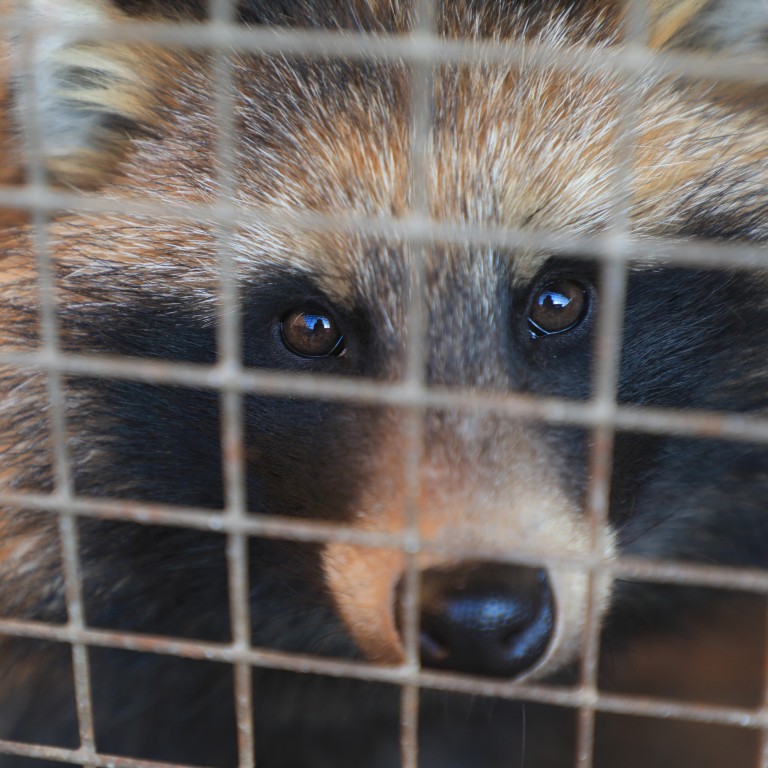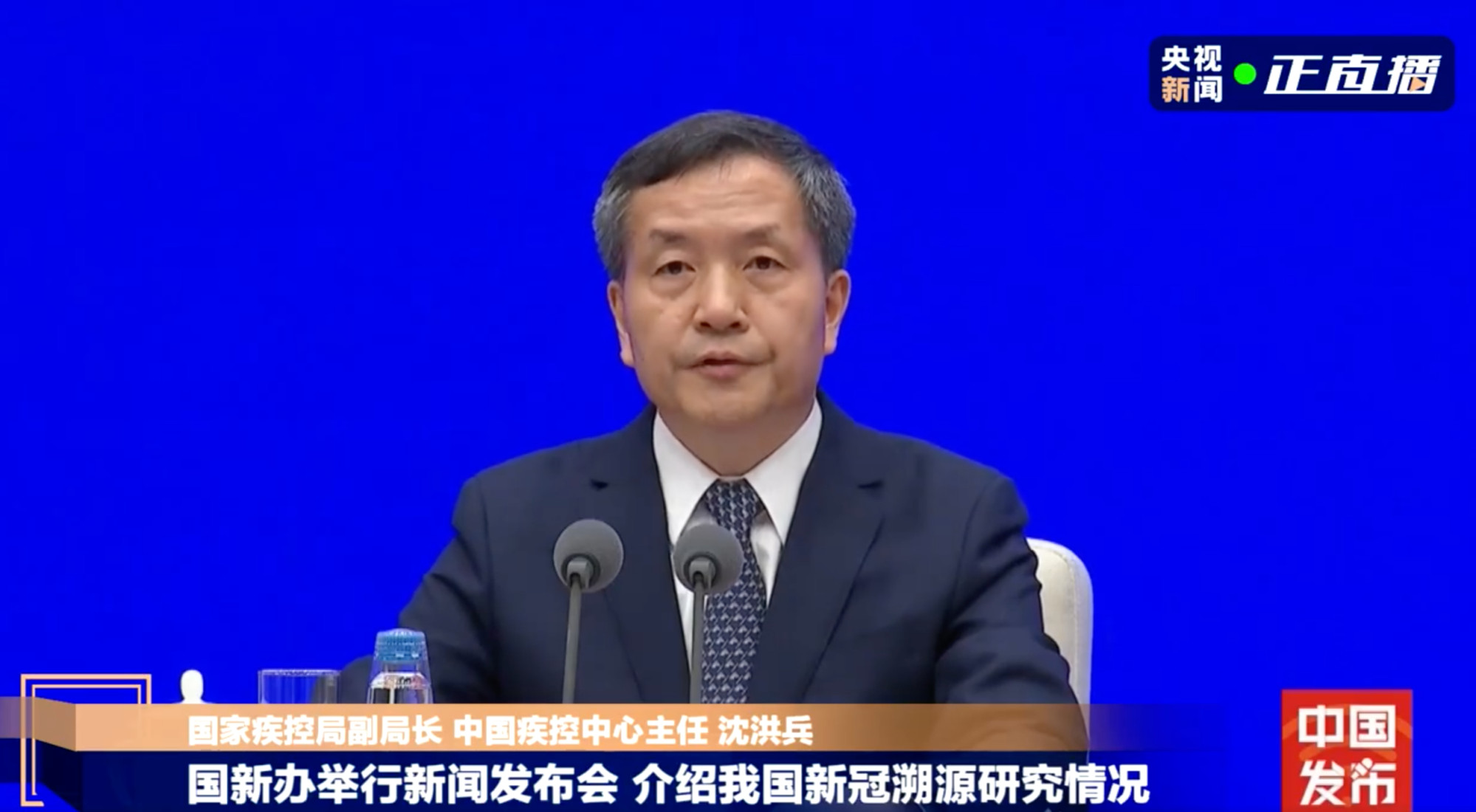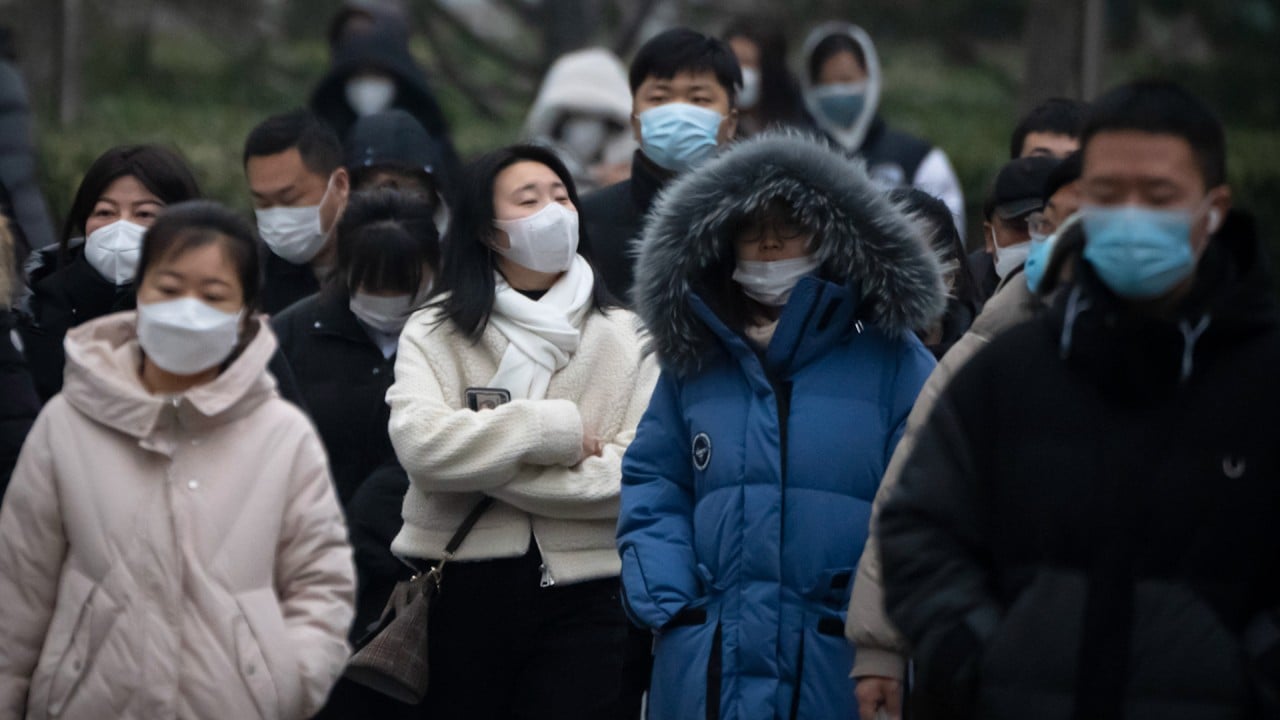
China accuses WHO of politicising search for Covid origins after complaints about lack of transparency
- The UN health agency recently appealed to China to cooperate by sharing whatever information it had
- Shen Hongbing, the head of China’s CDC, complained that senior WHO officials were ‘going against the spirit of science’ and urged them to remain impartial
It has also said it believes China has far more information that could shed light on the origins of the disease, which has killed around 7 million people over the past three years.
Shen Hongbing, director of the Chinese Centre for Disease Control and Prevention, said on Saturday: “We urge relevant persons from the World Health Organization to return to a scientific and impartial stance, and not to actively or be forced to become a tool for individual countries to politicise the origins of Covid-19.”
At a press conference at the State Council Information Office, he referred to a preliminary joint investigation between China and the WHO carried out in Wuhan in 2021, saying China had provided “all relevant information about the origins it had at the time, and did not conceal any cases, samples, and test and analysis results”.
“Recently, individual officials and experts of the World Health Organization have expressed their views and hastily denied the results from that time, which is completely against the spirit of science, and is intolerable to the Chinese scientific community, and cannot be accepted by the global scientific community,” Shen said.

Earlier this week, WHO director general Tedros Adhanom Ghebreyesus pressed China to be cooperative and share its information about the origins of Covid-19, echoing comments he made after the raccoon dog data emerged, when he said it “could have – and should have – been shared three years ago”.
On Thursday he revisited the issue, saying: “Without full access to the information that China has, you cannot say this or that.
“All hypotheses are on the table. That’s the WHO’s position and that’s why we have been asking China to be cooperative on this.”
The same day, Maria Van Kerkhove, the WHO’s Covid-19 technical lead, also urged China to share related information “immediately”, adding: “We know there is more information that’s out there.”
One of the main theories is that the virus originated from bats and spilled over to humans via an as-yet-unidentified host.
Another theory is that the disease leaked from a laboratory in Wuhan that had been studying coronaviruses, a theory China has strongly rejected.
WHO urges nations to share Covid origins info as US, China spar over lab claims
Last month it emerged that samples taken at the Huanan market in Wuhan in January 2020, close to where the first human cases were detected, showed that raccoon dog DNA had co-mingled with the virus.
But in Saturday’s press conference, Tong Yigang, a professor from Beijing University of Chemical Technology said “there is far from enough evidence” to prove the theory that raccoon dogs had been the host.
Tong cited a paper published by Chinese researchers in the journal Nature on Wednesday, which studied the 2020 samples from the market. It found that Sars-CoV-2 had been detected in 73 environmental samples but in none of the animal samples.
“Even if raccoon dogs were infected, because many people had been infected with this disease in the market, it is entirely possible that people polluted the environment or people infected the raccoon dogs,” he said.
Tong added that the origin of the disease “remains to be further studied”.
“We believe that the so-called animal-to-human transmission in the market lacks a scientific basis,” he said.
Tong said the preliminary investigations in Wuhan had concluded a lab leak was “extremely unlikely” and said more studies should be carried out on this basis.
“We also strongly oppose smearing, unscientific, irrational behaviour,” he added, referring to a recent US Congress bill to declassify information about the origins of Covid.
Zhou Lei, a researcher with the Chinese CDC, said China will continue to “share the latest research results and data ” about the origin “in a timely manner”.
The raccoon dog data was found last month on the Global Initiative on Sharing All Influenza Data (GISAID) database and downloaded by scientists from several countries. It later became inaccessible.
Shen addressed the issue on Saturday, saying Chinese scientists had “followed international practice” by uploading the data to GISAID as part of the peer review and revision process in February 2022.
But he said this data should only be released to the public after the article is officially published.
However, the author’s team discovered on March 11 that the data uploaded to the GISAID platform had been released in advance by database staff before the article was published and without the team’s knowledge.
Covid-19 data points to animal origin of virus: WHO advisers
Later the staff told the Chinese team that the release of the data was caused by a “misoperation” from the database’s staff and the platform later shut down data-sharing.
Shen added that the data had been made available after the paper was published in Nature on April 5.



